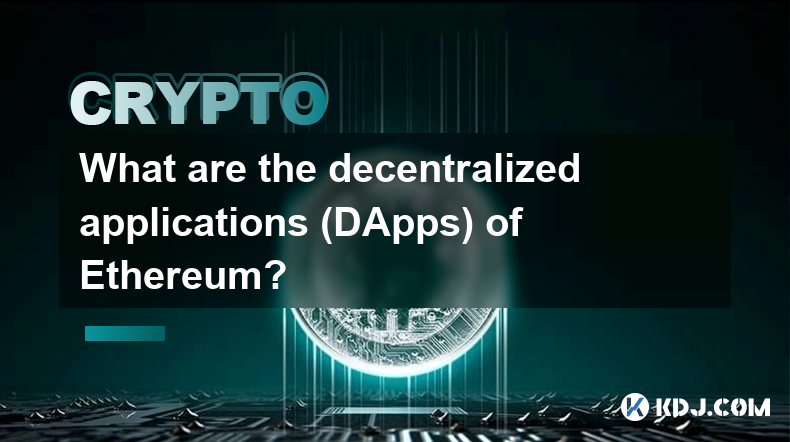-
 Bitcoin
Bitcoin $96,597.0979
2.11% -
 Ethereum
Ethereum $1,804.6867
1.92% -
 Tether USDt
Tether USDt $1.0002
0.02% -
 XRP
XRP $2.1161
-0.36% -
 BNB
BNB $598.4182
0.07% -
 Solana
Solana $145.2970
1.13% -
 USDC
USDC $1.0001
0.00% -
 Dogecoin
Dogecoin $0.1695
1.54% -
 TRON
TRON $0.2463
0.42% -
 Cardano
Cardano $0.6601
1.03% -
 Sui
Sui $3.2635
1.42% -
 Chainlink
Chainlink $13.5009
0.35% -
 UNUS SED LEO
UNUS SED LEO $8.7098
-0.02% -
 Avalanche
Avalanche $19.1267
-2.75% -
 Stellar
Stellar $0.2576
0.93% -
 Shiba Inu
Shiba Inu $0.0...01261
1.28% -
 Toncoin
Toncoin $2.9844
-0.67% -
 Hedera
Hedera $0.1730
0.19% -
 Bitcoin Cash
Bitcoin Cash $360.0948
0.85% -
 Hyperliquid
Hyperliquid $20.8398
1.13% -
 Litecoin
Litecoin $88.1330
6.67% -
 Polkadot
Polkadot $3.8861
-0.99% -
 Dai
Dai $1.0003
0.01% -
 Monero
Monero $281.5023
-0.76% -
 Bitget Token
Bitget Token $4.2361
-1.34% -
 Ethena USDe
Ethena USDe $1.0005
0.01% -
 Pi
Pi $0.5779
-0.26% -
 Pepe
Pepe $0.0...08054
2.91% -
 Bittensor
Bittensor $354.3024
-1.31% -
 OKB
OKB $50.7764
0.44%
What are the decentralized applications (DApps) of Ethereum?
Ethereum's decentralized platform enables diverse DApps spanning DeFi, NFTs, gaming, and social media, offering enhanced security and transparency but facing scalability and user experience challenges.
Mar 06, 2025 at 10:36 pm

Key Points:
- Ethereum's decentralized nature allows for the creation of a wide variety of DApps.
- These DApps operate without a central authority, enhancing security and transparency.
- Popular categories include DeFi, NFTs, gaming, and social media.
- Building and interacting with DApps often involves using a crypto wallet and understanding smart contracts.
- Scalability and user experience remain ongoing challenges for Ethereum DApps.
What are the Decentralized Applications (DApps) of Ethereum?
Ethereum, unlike Bitcoin which primarily focuses on cryptocurrency transactions, is a platform designed to support the creation and execution of decentralized applications (DApps). These DApps run on a distributed network of computers, rather than on a single server controlled by a company. This decentralized nature is what makes them unique and offers several advantages, including increased security and resistance to censorship.
Decentralized Finance (DeFi):
DeFi applications are arguably the most prominent category of Ethereum DApps. They offer alternatives to traditional financial services, operating without intermediaries like banks. Examples include decentralized exchanges (DEXs) like Uniswap and SushiSwap, which allow users to trade cryptocurrencies directly with each other, lending and borrowing platforms like Aave and Compound that provide interest-bearing accounts and loans, and stablecoins that aim to maintain a stable value pegged to fiat currencies. The open-source nature of many DeFi protocols encourages community participation and innovation.
Non-Fungible Tokens (NFTs):
NFTs represent unique digital assets, verifiable on the blockchain. Ethereum's smart contract functionality is crucial for creating and managing NFTs, enabling the representation of ownership and authenticity. The Ethereum blockchain has become a dominant platform for NFT marketplaces like OpenSea, where users can buy, sell, and trade digital art, collectibles, in-game items, and other unique digital assets. The NFT ecosystem has seen explosive growth, but also significant controversy regarding its environmental impact and speculative nature.
Gaming:
The Ethereum blockchain is also powering the development of a new generation of games, often referred to as "play-to-earn" games. These games utilize blockchain technology to create in-game assets that are represented as NFTs, allowing players to own and trade their virtual items. This introduces new economic models within gaming, allowing players to potentially earn cryptocurrency while playing. However, challenges remain in balancing the gameplay experience with the complexity of blockchain technology.
Social Media:
While still in its early stages, decentralized social media platforms are emerging on Ethereum. These platforms aim to offer users more control over their data and content, reducing the power of centralized social media giants. The idea is to use blockchain technology to provide transparency and prevent censorship, empowering users to own their social media presence. However, creating engaging and user-friendly decentralized social media platforms remains a complex undertaking.
How to Interact with Ethereum DApps:
To interact with Ethereum DApps, you'll generally need a crypto wallet that supports Ethereum, such as MetaMask, Trust Wallet, or Ledger. These wallets allow you to store your Ethereum and other ERC-20 tokens, which are often used to interact with DApps. Many DApps also require users to understand the concept of smart contracts, which are self-executing contracts with the terms of the agreement between buyer and seller being directly written into lines of code.
Building Ethereum DApps:
Developing Ethereum DApps involves using tools and frameworks such as Solidity, a programming language specifically designed for writing smart contracts, and various development environments. Understanding blockchain concepts, cryptography, and software development principles is essential for creating functional and secure DApps. The process involves writing smart contracts, deploying them to the Ethereum network, and building a user interface (UI) to interact with the smart contracts.
Challenges and Future Directions:
Ethereum faces ongoing challenges related to scalability and transaction fees (gas fees). As the network's popularity grows, transaction costs can become high, affecting the accessibility of some DApps. Efforts are underway to improve Ethereum's scalability through various solutions, such as layer-2 scaling solutions and network upgrades. The future of Ethereum DApps will likely see increased innovation in areas like DeFi, NFTs, gaming, and social media, as well as the development of new use cases that leverage the unique capabilities of blockchain technology.
Frequently Asked Questions:
Q: Are Ethereum DApps secure?
A: The security of Ethereum DApps depends on the quality of their code and the security practices of their developers. While the decentralized nature of Ethereum enhances security, vulnerabilities in smart contracts can still be exploited. Thorough audits and security best practices are crucial.
Q: What are gas fees?
A: Gas fees are transaction fees paid to miners on the Ethereum network for processing transactions and executing smart contracts. The cost of gas depends on the complexity of the transaction and the network's congestion.
Q: How do I choose a reliable Ethereum DApp?
A: Research the DApp thoroughly, check its reputation and reviews, look for audits of its smart contracts, and be cautious of promises of unrealistic returns. Never invest more than you can afford to lose.
Q: What are ERC-20 tokens?
A: ERC-20 tokens are tokens built on the Ethereum blockchain that follow a specific technical standard. This standard ensures interoperability and allows for easy integration with other DApps and exchanges. Many DeFi tokens and NFTs utilize this standard.
Q: Is Ethereum the only platform for DApps?
A: No, other blockchain platforms also support DApp development, each with its own strengths and weaknesses. Competition exists between platforms, leading to innovation and improvement across the industry.
Disclaimer:info@kdj.com
The information provided is not trading advice. kdj.com does not assume any responsibility for any investments made based on the information provided in this article. Cryptocurrencies are highly volatile and it is highly recommended that you invest with caution after thorough research!
If you believe that the content used on this website infringes your copyright, please contact us immediately (info@kdj.com) and we will delete it promptly.
- 21Shares Launches a New Exchange-Traded Product (ETP) That Provides Investors with Regulated Access to Crypto.com’s Cronos (CRO) Token
- 2025-05-08 00:35:12
- USD1 Stablecoin Has Officially Listed on HTX Exchange
- 2025-05-08 00:35:12
- Official Trump (TRUMP) Meme Coin: Only 58 Wallets Made Profits of $10 Million Each
- 2025-05-08 00:30:13
- Days before he was inaugurated for a second term, President Trump launched a meme coin
- 2025-05-08 00:30:13
- VeChain (VET) Draws Renewed Attention as It Moves Closer to Launching Its “Stargate” Protocol Update
- 2025-05-08 00:25:13
- World Liberty Financial (WLF) Initiates Next Phase of Token Distribution Strategy with USD1 Stablecoin Airdrop
- 2025-05-08 00:25:13
Related knowledge

How to perform MOVE cross-chain transfer? What to do if the gas fee is too high?
May 07,2025 at 08:03pm
Introduction to MOVE Cross-Chain TransferCross-chain transfers have become an essential part of the cryptocurrency ecosystem, allowing users to move assets between different blockchain networks. One of the popular protocols for achieving this is the MOVE cross-chain transfer. This article will guide you through the process of performing a MOVE cross-cha...

Does DYDX support cross-chain? Is the transfer speed fast?
May 07,2025 at 05:56pm
Introduction to DYDXDYDX is a leading decentralized exchange (DEX) that primarily operates on the Ethereum blockchain. It is known for its advanced trading features, including perpetual contracts and margin trading. A common question among users is whether DYDX supports cross-chain functionality and how fast the transfer speeds are. In this article, we ...

How to close a DYDX contract? How to set an automatic stop loss?
May 08,2025 at 12:29am
Closing a DYDX contract and setting an automatic stop loss are crucial skills for managing your positions on the dYdX decentralized exchange. Whether you're looking to mitigate risk or simply exit a trade, understanding these processes can enhance your trading strategy. In this article, we will explore the detailed steps for closing a DYDX contract and ...

How to open DYDX leverage? What is the maximum multiple?
May 07,2025 at 05:21pm
Opening leverage on DYDX can be an exciting way to potentially increase your returns in the cryptocurrency market. However, it's important to understand the process thoroughly and be aware of the risks involved. In this article, we'll walk you through the steps to open leverage on DYDX and discuss the maximum leverage multiple available. Understanding D...

How to top up and trade DYDX? What is the withdrawal fee?
May 07,2025 at 06:02pm
Introduction to DYDXDYDX is a decentralized exchange (DEX) that operates on the Ethereum blockchain, allowing users to trade cryptocurrencies without the need for intermediaries. It is known for its perpetual contracts, which are a type of derivative that allows traders to speculate on the price movements of various assets. To engage with DYDX, users ne...

Are KAVA transactions anonymous? What are the privacy protection measures?
May 07,2025 at 05:43pm
Are KAVA transactions anonymous? What are the privacy protection measures? KAVA is a blockchain platform designed to bring decentralized finance (DeFi) applications to the masses. As with many blockchain platforms, privacy and anonymity are significant concerns for users. This article delves into the anonymity of KAVA transactions and the privacy protec...

How to perform MOVE cross-chain transfer? What to do if the gas fee is too high?
May 07,2025 at 08:03pm
Introduction to MOVE Cross-Chain TransferCross-chain transfers have become an essential part of the cryptocurrency ecosystem, allowing users to move assets between different blockchain networks. One of the popular protocols for achieving this is the MOVE cross-chain transfer. This article will guide you through the process of performing a MOVE cross-cha...

Does DYDX support cross-chain? Is the transfer speed fast?
May 07,2025 at 05:56pm
Introduction to DYDXDYDX is a leading decentralized exchange (DEX) that primarily operates on the Ethereum blockchain. It is known for its advanced trading features, including perpetual contracts and margin trading. A common question among users is whether DYDX supports cross-chain functionality and how fast the transfer speeds are. In this article, we ...

How to close a DYDX contract? How to set an automatic stop loss?
May 08,2025 at 12:29am
Closing a DYDX contract and setting an automatic stop loss are crucial skills for managing your positions on the dYdX decentralized exchange. Whether you're looking to mitigate risk or simply exit a trade, understanding these processes can enhance your trading strategy. In this article, we will explore the detailed steps for closing a DYDX contract and ...

How to open DYDX leverage? What is the maximum multiple?
May 07,2025 at 05:21pm
Opening leverage on DYDX can be an exciting way to potentially increase your returns in the cryptocurrency market. However, it's important to understand the process thoroughly and be aware of the risks involved. In this article, we'll walk you through the steps to open leverage on DYDX and discuss the maximum leverage multiple available. Understanding D...

How to top up and trade DYDX? What is the withdrawal fee?
May 07,2025 at 06:02pm
Introduction to DYDXDYDX is a decentralized exchange (DEX) that operates on the Ethereum blockchain, allowing users to trade cryptocurrencies without the need for intermediaries. It is known for its perpetual contracts, which are a type of derivative that allows traders to speculate on the price movements of various assets. To engage with DYDX, users ne...

Are KAVA transactions anonymous? What are the privacy protection measures?
May 07,2025 at 05:43pm
Are KAVA transactions anonymous? What are the privacy protection measures? KAVA is a blockchain platform designed to bring decentralized finance (DeFi) applications to the masses. As with many blockchain platforms, privacy and anonymity are significant concerns for users. This article delves into the anonymity of KAVA transactions and the privacy protec...
See all articles





















































































